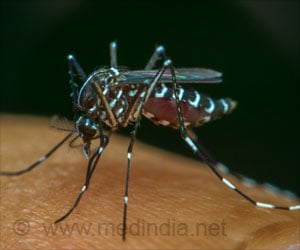
‘Zika can cause microcephaly and other problems in babies whose mothers were infected while pregnant. The damage is not occurring through the virus infection, but rather the immune response to the virus.’
Tweet it Now
This insight could lead to new ways of treating patients with Zika-related complications, such as Guillain-Barré syndrome, the researchers said. In mice models lacking a key antiviral response, infection with Zika virus causes paralysis and death. To understand the mechanism, a research team led by immunobiologist Akiko Iwasaki examined the spread of infection in these mice.
The research team found that when the Zika infection spreads from the circulating blood into the brain, immune cells known as CD8 T cells flood the brain. While these T cells sharply limit the infection of nerve cells, they also trigger Zika-related paralysis, the researchers said.
"The immune cells that are generated by infection start attacking our own neurons," Iwasaki said. "The damage is not occurring through the virus infection, but rather the immune response to the virus."
Immune-mediated nerve damage underlies Guillen-Barré syndrome, which affects some people infected with the Zika virus. The study findings suggest that suppressing the immune response might be an approach to treating the syndrome, which causes weakness, tingling, and, in rare cases, paralysis.
Advertisement









